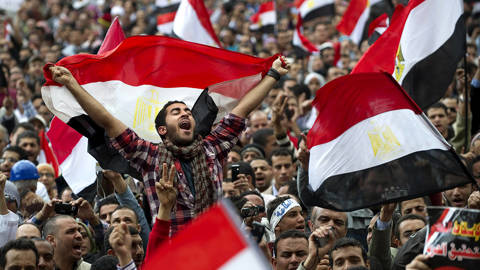The Legacy of Egypt’s Arab Spring
Ten years after a popular uprising overthrew a dictator, Egypt largely appears to be back where it started. Why were Egyptians’ democratic hopes dashed, and can they still be realized?
Listen and subscribe to all episodes from your favorite podcast app. Find Opinion Has It on Apple Podcasts, Google Podcasts, Acast, or via RSS Feed. Have a suggestion for an episode? Email us at podcasts@project-syndicate.org.
Transcript
A transcript of this podcast follows:
Elmira Bayrasli: Welcome to Opinion Has It. I’m Elmira Bayrasli
Archive recording: It was the year of people power, of revolution ...
Archive recording: From Tunisia to Egypt, from Libya to Syria.
Archive recording: We’re in this ’til the end, even if it means we’re going to die ...
